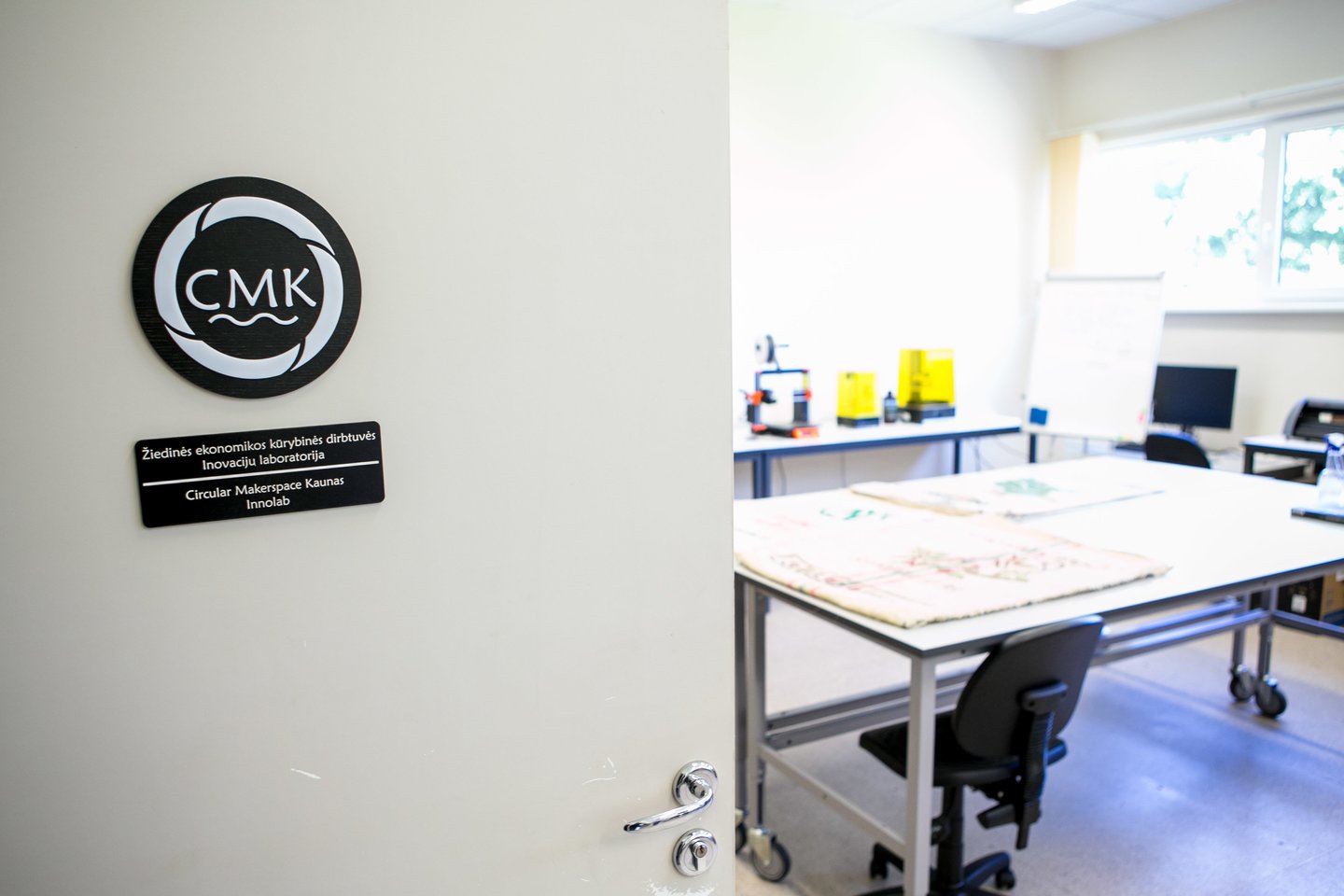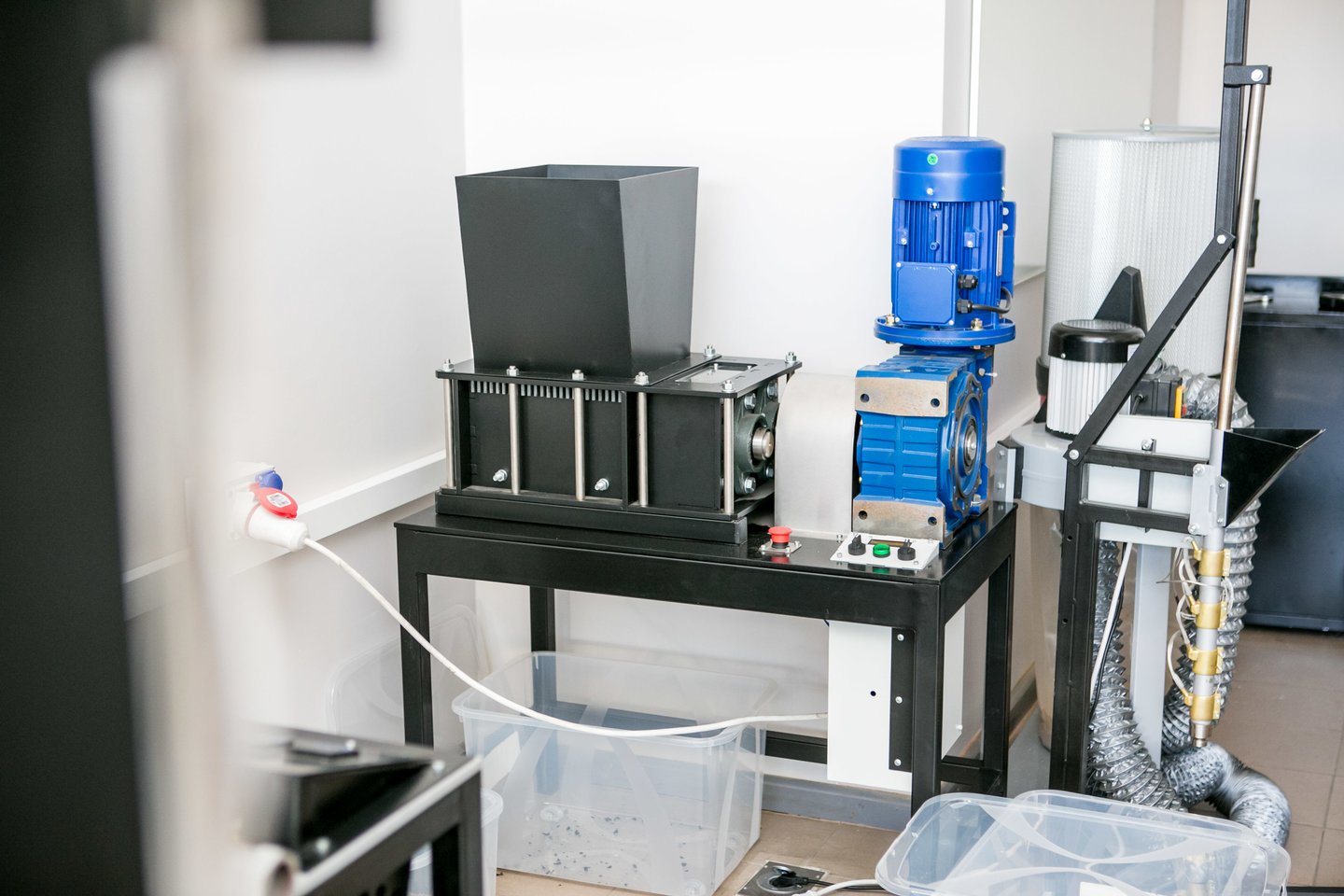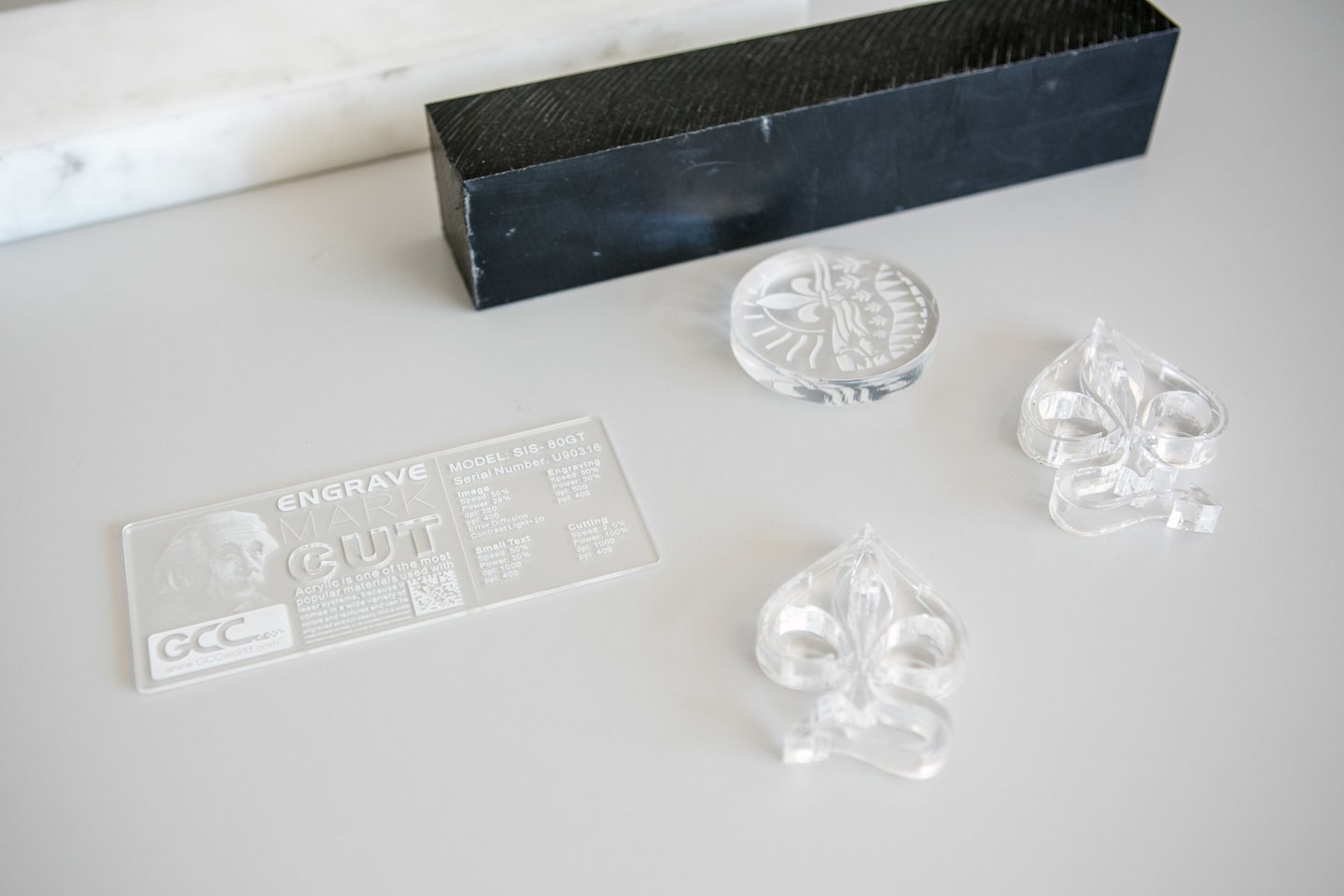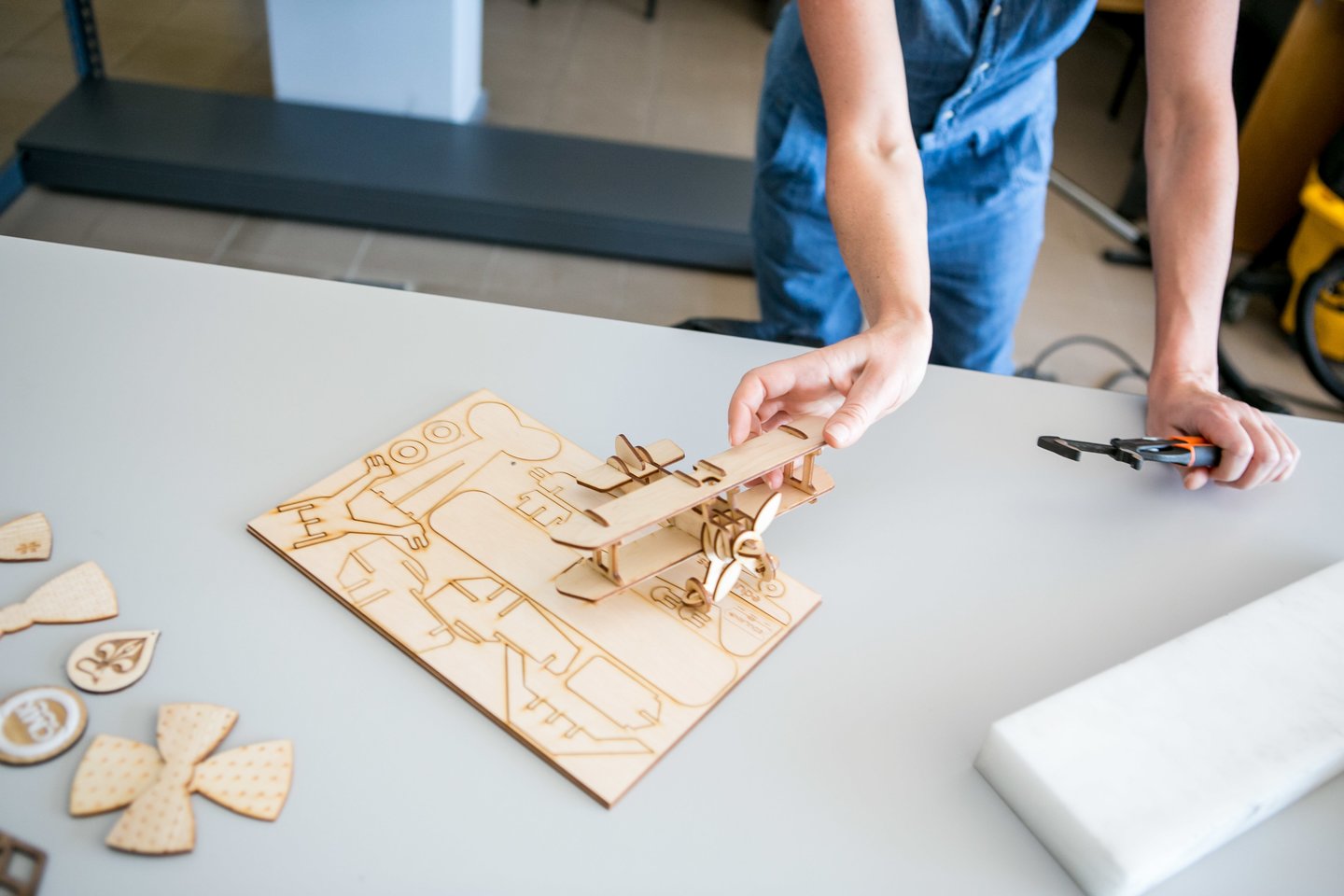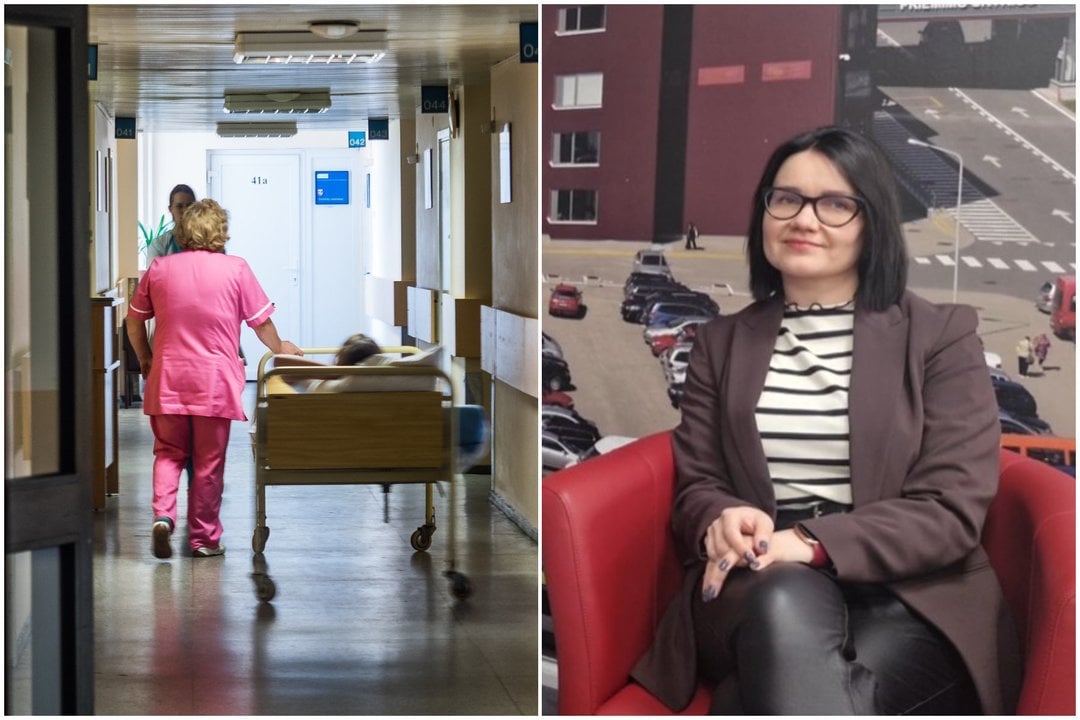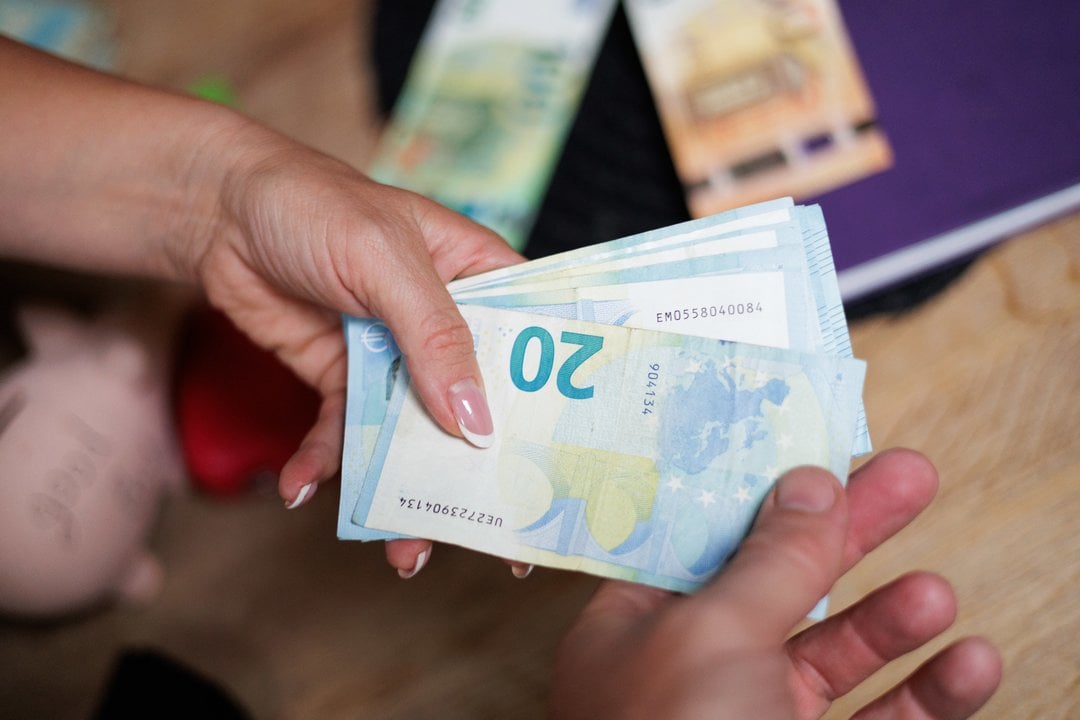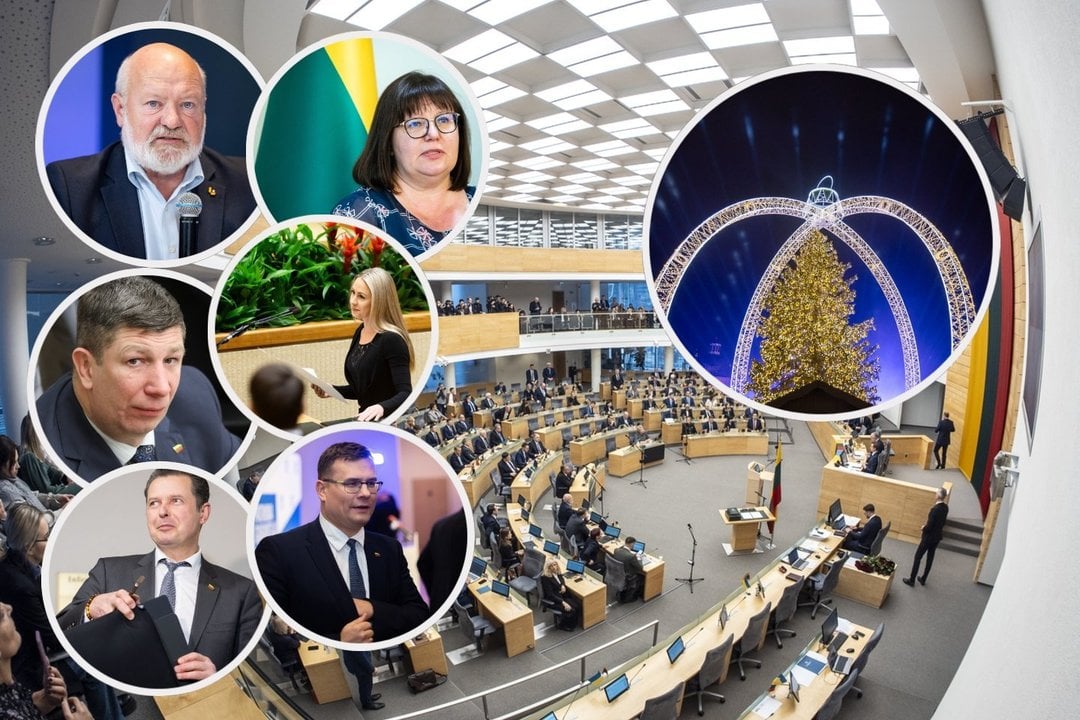Strengthening the circular economy
A clean technology and training space has been set up on the Kaunas University of Technology campus (Studentų g. 54). Visitors can use 3D printers, computers with modelling equipment, laser cutting machines, a plotter, and sewing machines. There are also rooms for training or thematic meetings.
The workshop can repair, process, or recycle electronics, wood, and plastics. There are machines for wood and aluminium processing, laser cutting and a circular saw.
“Sustainability is one of Kaunas’ key strategic directions. By opening the workshop, we are further strengthening the circular economy processes in the city. We will encourage motivated and creative people to implement their ideas together, to learn about and use modern technologies, and to present the results in international projects,” Andrius Palionis, vice mayor of Kaunas, welcomed the new initiative to the city.
According to the vice mayor, the new space is not only for scientists but is also accessible to all Kaunas citizens.
Changing entrenched attitudes
“This centre for innovative technologies is the beginning of great things. We want to bring as much waste as possible back to life and turn it into useful things.
The space will help developers try out new business models and test their ideas, even if they don’t have the resources or knowledge to do so. The workshop will not only provide training on how to use the equipment but also creative sessions,” said V. Varžinskas, head of the Packaging Innovation and Research Centre at Kaunas University of Technology.
According to him, the new innovation space will significantly contribute to the further growth of Kaunas in the direction of the Green Deal and to the changes that are being sought and implemented in the city.
Kaunas has recently adopted a Strategic Development Plan 2030 with a particular focus on sustainability. The working group that drafted the document set out to change the long-standing perception that the circular economy is only about reducing waste emissions. The real impact and outcome are much broader and more encompassing: reducing economic dependence on primary resource extraction, both within the country and especially beyond.
Kaunas is among the smartest cities
The circular economy workshop is a joint project of Kaunas City Municipality, KTU, and ISM University of Economics and Management. The equipment was purchased within the framework of the European Union’s Horizon2020 project “Pop-Machina. Collaborative Production for the Circular Economy; a Community Approach”. The investment to purchase the equipment amounts to €100,000.
“The Pop-Machina project aims to develop innovative solutions to actively engage urban populations in activities based on circular economy principles, test these solutions and prepare recommendations for their application in other countries.
According to Dr Justina Gineikienė, professor at ISM University of Management and Economics, research is being carried out with the same aim. The results not only help to understand how to increase the popularity of circular products but also provide recommendations on how best to set up circular makers’ workshops in other cities, how to encourage people to become makers and how to develop their hobby of making into a sustainable small business.
“Residents who have green ideas will be helped to develop them. Meanwhile, those who are already implementing their ideas will be helped to find out how they can do business more efficiently, faster and on a larger scale,” says Prof. Dr. J. Gineikienė.
To visit the lab, participants need to register in the specially designed system (bit.ly/ziedine-ekonomika). The timetable for the availability of space and equipment is also available here.
